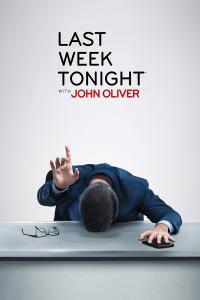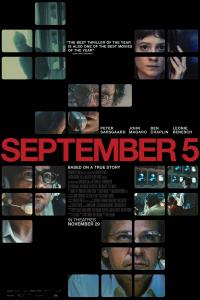Torrent details for "The Threat by Andrew McCabe (azw3 epub mobi)" Log in to bookmark
Controls:
Language:
 English
EnglishTotal Size:
2.95 MB
Info Hash:
6abb21b8199d2f9a91654d10c8b2ed673a1fe2a6
Added By:
Added:
20-02-2019 07:16
Views:
796
Health:

Seeds:
1
Leechers:
0
Completed:
3
Thanks for rating :
tinous (5),
tinous (5),
The Threat: (azw3 epub mobi)
How the FBI Protects America in the Age of Terror and Trump

An autobiography written by Andrew McCabe,
the former Deputy Director of the Federal Bureau of Investigation.
McCabe book details dysfunction and frenzy in Trump administration
By Laura Jarrett, CNN
(CNN) In the early days of the Trump administration, the national security adviser lied to the vice president about his interactions with a Russian diplomat. The attorney general appeared to confuse news reports with classified information he received from intelligence reports. The White House chief of staff expressed frustration that the FBI wouldn't knock down media reports about Trump campaign associates' communications with Russians known to US intelligence.
And that's all before President Donald Trump fired FBI Director James Comey.
"The Threat," a new memoir by former acting FBI Director Andrew McCabe, paints a stark portrait of his time at the bureau under Trump, describing in vivid detail his version of interactions with top officials at the White House and Justice Department.
He describes them as unprepared, ignorant, self-interested or simply blindsided by the disturbing situations they found themselves in, and led by a commander-in-chief who refused to listen to career intelligence officials on threats posed by North Korea "because Vladimir Putin had told him" differently.
In many ways, McCabe's views echo the same concerns laid bare in Comey's memoir -- both men at the highest levels of law enforcement, deeply disturbed by the idea Trump poses an existential threat to the rule of law. It's the latest tell-all in a string of narratives offered by former administration officials over the past two years, consistently chronicling a rudderless White House marked by deep dysfunction.
McCabe recalls the day he showed Vice President Mike Pence information that proved former national security adviser Michael Flynn had lied to Pence about a conversation with the Russian ambassador, Sergey Kislyak, and later describes his own interactions with Flynn.
The early days of McCabe's career taking on Russian organized crime in New York serve as a backdrop for his battle to get to the bottom of Russian interference in the 2016 election nearly two decades later, as he recounts in the book how "the President and his men were trying to work me the way a criminal brigade would operate."
McCabe directs his fiercest criticisms at Trump -- and it is personal. He writes how the President repeatedly bullied him about his wife's failed state Senate run, promoted the idea that donations Dr. Jill McCabe received from the political action committee of then-Democratic Virginia Gov. Terry McAuliffe, a Clinton family ally, meant that McCabe was biased in Hillary Clinton's favor when the FBI later investigated her mishandling of classified information, and generally "terrorize{d}" his family.
Effective leadership is a running theme throughout the memoir, and McCabe treats his former boss, Robert Mueller -- who now serves as special counsel of the Russia investigation -- with reverence, detailing Mueller's "quirks" and hand gestures with the same fondness as his skills at cross-examination.
By contrast, McCabe offers a scathing depiction of Attorney General Jeff Sessions as a hapless, bumbling leader, with regressive and uninformed beliefs about national security, who harkened back for the "old days" when the FBI "only hired Irishmen," not those with "nose rings and tattoos," and appeared fixated on "immigration, even when there was no immigration angle" on any given topic.
Even more worrisome, according to McCabe, was Sessions' failure to "compartmentalize the new knowledge he acquired," and how Sessions "would say, I saw in the paper the other day ... and then would repeat an item that (the FBI) had briefed him on a few days earlier, intelligence from the (President's Daily Brief)."
Sessions has not commented publicly on McCabe's recitation of events, but a source close to the former attorney general scoffed at the idea of him ever saying anything disparaging about anyone in law enforcement.
McCabe's book, however, doesn't touch on some of the most pivotal moments of his tenure leading the bureau after Comey's abrupt termination in May 2017.
McCabe writes that he believed that "(a)ny minute, any hour, any day now," he figured he too would be fired, leading him in the time that he had as acting director to aggressively lobby Deputy Attorney General Rod Rosenstein to appoint a special counsel to protect the Russia investigation. Rosenstein -- filling the shoes of Sessions who'd stepped aside from overseeing the investigation weeks earlier given his role as a Trump campaign surrogate -- had been on the job as the No. 2 at the Justice Department for only two weeks before the President ordered him to write a memo justifying Comey's firing.
"The false story that had taken shape in press reports -- the notion that the whole thing had been Rod's idea -- was eating away at him," McCabe writes.
"{Rosenstein} wondered aloud if there was some way to collect explicit evidence of the President's apparent motivations and put it unequivocally on the record."
McCabe, meeting with Rosenstein frequently in the feverish days following Comey's departure, describes the deputy attorney general as a "flight of ideas" and his attention "flew all over."
It is in this same period that -- as has been widely reported, and McCabe recently confirmed on CBS' 60 Minutes -- Rosenstein raised the idea of wiring himself to surreptitiously record interactions with the President and mused about which Cabinet officials might support an effort to invoke the 25th Amendment to oust Trump from office.
However, those two controversial anecdotes, which Rosenstein maintains have been mischaracterized, are never mentioned in "The Threat."
One source in the room for the wire remark dismissed it as sarcasm, and the Justice Department issued a statement last week saying Rosenstein "never authorized any recording" and "based on his personal dealings with the President, there is no basis to invoke the 25th Amendment."
Nevertheless, Trump and his allies have pounced on McCabe's book and interviews, calling him a "disgrace," while simultaneously suggesting he and Rosenstein were "planning a very illegal act, and got caught."
McCabe, hamstrung by what he can say given that the Russia investigation is ongoing and by the fact that he's still under criminal investigation by federal prosecutors in DC for misleading investigators in an unrelated probe, says he'd "like to say much more."
The book's release date was delayed because due to the lengthy pre-publication review process conducted by the Justice Department and FBI, according to McCabe, and what was removed is unknown.
As an alternative, he offers thinly-veiled hypothetical scenarios tracking real-life events to explain his thinking:
"If -- hypothetically -- the FBI had information about events suggesting that a Cabinet nominee's testimony had been untrue, and Congress asked us to look into it, a case on that person could be opened," McCabe writes, immediately after mentioning that Sessions originally denied meeting with Russians during his Senate confirmation hearings, only to later acknowledge meeting with Kislyak.
"If the FBI found itself in circumstances like these, where the facts and our obligations under the guidelines were clear, and we chose not to open a case because it might involve government officials in the highest ranks, the Bureau would be guilty of dereliction of duty," he adds.
The origin of McCabe's dramatic fall, only sporadically sprinkled in "The Threat," stems from an internal review conducted by the Justice Department's inspector general, Michael Horowitz, whose office concluded that McCabe "lacked candor" and misled investigators about his role in directing other FBI officials to speak to a reporter about the FBI's investigation into the Clinton Foundation in 2016.
He tries to provide context for how distracted he was during his initial interviews with investigators given the demands of his job, and writes: "I wasn't trying to hide anything -- there was nothing to hide."
Ultimately, Sessions fired McCabe in March 2018, less than two days shy of his planned retirement, which has jeopardized his anticipated pension and sparked his forthcoming lawsuit.
In the end, McCabe believes he was fired for political purposes.
"This (inspector general's) report was used as a pretext for dismissal," McCabe writes. "I do not want to get down in the mud with the President. I do feel that I have an obligation to stand up and say, 'You can't do this.'"
How the FBI Protects America in the Age of Terror and Trump

An autobiography written by Andrew McCabe,
the former Deputy Director of the Federal Bureau of Investigation.
McCabe book details dysfunction and frenzy in Trump administration
By Laura Jarrett, CNN
(CNN) In the early days of the Trump administration, the national security adviser lied to the vice president about his interactions with a Russian diplomat. The attorney general appeared to confuse news reports with classified information he received from intelligence reports. The White House chief of staff expressed frustration that the FBI wouldn't knock down media reports about Trump campaign associates' communications with Russians known to US intelligence.
And that's all before President Donald Trump fired FBI Director James Comey.
"The Threat," a new memoir by former acting FBI Director Andrew McCabe, paints a stark portrait of his time at the bureau under Trump, describing in vivid detail his version of interactions with top officials at the White House and Justice Department.
He describes them as unprepared, ignorant, self-interested or simply blindsided by the disturbing situations they found themselves in, and led by a commander-in-chief who refused to listen to career intelligence officials on threats posed by North Korea "because Vladimir Putin had told him" differently.
In many ways, McCabe's views echo the same concerns laid bare in Comey's memoir -- both men at the highest levels of law enforcement, deeply disturbed by the idea Trump poses an existential threat to the rule of law. It's the latest tell-all in a string of narratives offered by former administration officials over the past two years, consistently chronicling a rudderless White House marked by deep dysfunction.
McCabe recalls the day he showed Vice President Mike Pence information that proved former national security adviser Michael Flynn had lied to Pence about a conversation with the Russian ambassador, Sergey Kislyak, and later describes his own interactions with Flynn.
The early days of McCabe's career taking on Russian organized crime in New York serve as a backdrop for his battle to get to the bottom of Russian interference in the 2016 election nearly two decades later, as he recounts in the book how "the President and his men were trying to work me the way a criminal brigade would operate."
McCabe directs his fiercest criticisms at Trump -- and it is personal. He writes how the President repeatedly bullied him about his wife's failed state Senate run, promoted the idea that donations Dr. Jill McCabe received from the political action committee of then-Democratic Virginia Gov. Terry McAuliffe, a Clinton family ally, meant that McCabe was biased in Hillary Clinton's favor when the FBI later investigated her mishandling of classified information, and generally "terrorize{d}" his family.
Effective leadership is a running theme throughout the memoir, and McCabe treats his former boss, Robert Mueller -- who now serves as special counsel of the Russia investigation -- with reverence, detailing Mueller's "quirks" and hand gestures with the same fondness as his skills at cross-examination.
By contrast, McCabe offers a scathing depiction of Attorney General Jeff Sessions as a hapless, bumbling leader, with regressive and uninformed beliefs about national security, who harkened back for the "old days" when the FBI "only hired Irishmen," not those with "nose rings and tattoos," and appeared fixated on "immigration, even when there was no immigration angle" on any given topic.
Even more worrisome, according to McCabe, was Sessions' failure to "compartmentalize the new knowledge he acquired," and how Sessions "would say, I saw in the paper the other day ... and then would repeat an item that (the FBI) had briefed him on a few days earlier, intelligence from the (President's Daily Brief)."
Sessions has not commented publicly on McCabe's recitation of events, but a source close to the former attorney general scoffed at the idea of him ever saying anything disparaging about anyone in law enforcement.
McCabe's book, however, doesn't touch on some of the most pivotal moments of his tenure leading the bureau after Comey's abrupt termination in May 2017.
McCabe writes that he believed that "(a)ny minute, any hour, any day now," he figured he too would be fired, leading him in the time that he had as acting director to aggressively lobby Deputy Attorney General Rod Rosenstein to appoint a special counsel to protect the Russia investigation. Rosenstein -- filling the shoes of Sessions who'd stepped aside from overseeing the investigation weeks earlier given his role as a Trump campaign surrogate -- had been on the job as the No. 2 at the Justice Department for only two weeks before the President ordered him to write a memo justifying Comey's firing.
"The false story that had taken shape in press reports -- the notion that the whole thing had been Rod's idea -- was eating away at him," McCabe writes.
"{Rosenstein} wondered aloud if there was some way to collect explicit evidence of the President's apparent motivations and put it unequivocally on the record."
McCabe, meeting with Rosenstein frequently in the feverish days following Comey's departure, describes the deputy attorney general as a "flight of ideas" and his attention "flew all over."
It is in this same period that -- as has been widely reported, and McCabe recently confirmed on CBS' 60 Minutes -- Rosenstein raised the idea of wiring himself to surreptitiously record interactions with the President and mused about which Cabinet officials might support an effort to invoke the 25th Amendment to oust Trump from office.
However, those two controversial anecdotes, which Rosenstein maintains have been mischaracterized, are never mentioned in "The Threat."
One source in the room for the wire remark dismissed it as sarcasm, and the Justice Department issued a statement last week saying Rosenstein "never authorized any recording" and "based on his personal dealings with the President, there is no basis to invoke the 25th Amendment."
Nevertheless, Trump and his allies have pounced on McCabe's book and interviews, calling him a "disgrace," while simultaneously suggesting he and Rosenstein were "planning a very illegal act, and got caught."
McCabe, hamstrung by what he can say given that the Russia investigation is ongoing and by the fact that he's still under criminal investigation by federal prosecutors in DC for misleading investigators in an unrelated probe, says he'd "like to say much more."
The book's release date was delayed because due to the lengthy pre-publication review process conducted by the Justice Department and FBI, according to McCabe, and what was removed is unknown.
As an alternative, he offers thinly-veiled hypothetical scenarios tracking real-life events to explain his thinking:
"If -- hypothetically -- the FBI had information about events suggesting that a Cabinet nominee's testimony had been untrue, and Congress asked us to look into it, a case on that person could be opened," McCabe writes, immediately after mentioning that Sessions originally denied meeting with Russians during his Senate confirmation hearings, only to later acknowledge meeting with Kislyak.
"If the FBI found itself in circumstances like these, where the facts and our obligations under the guidelines were clear, and we chose not to open a case because it might involve government officials in the highest ranks, the Bureau would be guilty of dereliction of duty," he adds.
The origin of McCabe's dramatic fall, only sporadically sprinkled in "The Threat," stems from an internal review conducted by the Justice Department's inspector general, Michael Horowitz, whose office concluded that McCabe "lacked candor" and misled investigators about his role in directing other FBI officials to speak to a reporter about the FBI's investigation into the Clinton Foundation in 2016.
He tries to provide context for how distracted he was during his initial interviews with investigators given the demands of his job, and writes: "I wasn't trying to hide anything -- there was nothing to hide."
Ultimately, Sessions fired McCabe in March 2018, less than two days shy of his planned retirement, which has jeopardized his anticipated pension and sparked his forthcoming lawsuit.
In the end, McCabe believes he was fired for political purposes.
"This (inspector general's) report was used as a pretext for dismissal," McCabe writes. "I do not want to get down in the mud with the President. I do feel that I have an obligation to stand up and say, 'You can't do this.'"











































